
Development of Shaklee Corporation; Ms Helen Lam, President of Shaklee Malaysia, Dr
Nurzarina Abdul Rahman, Founder and Certified Lactation Counsellor of Gravidities
Consultancy; Dr Mathi Arasu Muthusamy, Fertility Specialist & Medical Director of
Fertility Associates
Organised by one of Malaysia’s leading nutrition companies, Shaklee Products (M) Sdn Bhd (“Shaklee Malaysia”), the expert roundtable session themed “All About Fertility & Pregnancy: Truths & Myths” saw other expert panellists, namely Dr Sonhee Park, Senior Research Scientist in Research & Development of Shaklee Corporation (USA), Dr Mathi Arasu Muthusamy, Fertility Specialist & Medical Director of Fertility Associates and Dr Nurzarina Abdul Rahman, Founder and Certified Lactation Counsellor of Gravidities Consultancy, discuss topics surrounding pregnancy, breastfeeding and fertility.
Dr Sonhee Park emphasised that deficiency in nutrients such as Vitamin B9 (folate) is highly prevalent in pregnancy and breastfeeding women and their infants. Deficiency in Vitamin B9 during pregnancy is associated with increased risk of birth defects and in B12, iodine, and iron with other common complications in infants and mothers
“Nutrition is key in all stages of life, especially in the reproductive years for women who plan on conceiving. As the saying goes, “a healthy mother makes a healthy baby.” While every mother wants the best for her children, nutrition plays a fundamental role in paving a conducive environment for fertility to take place (pre-conceptional), a healthy pregnancy (prenatal), and a sustainable motherhood journey especially during breastfeeding (postnatal),” said Park. Vitamin B9 deficiency during pregnancy has been found to increase the risk of birth defects, such as spina bifida and other serious and irreversible birth defects in the brain, spinal cords, and heart. Associated with the development of neurological and cognitive functions of the foetus and infant, B12 and iodine are also critical vitamin and mineral for expecting mothers to consume optimum levels. According to the Ministry of Health in Malaysia, expectant mothers are recommended to consume 600 mcg of folic acid, 4.5 mcg of B12, and 200 mcg of iodine per day.
Docosahexaenoic acid (DHA) is a nutrient that will be transferred to the baby during both pregnancy and breastfeeding phases and is essential for brain, eye and nervous system development. However, since growing babies rely on their mothers for DHA supply, it is important for mothers to consume sufficient DHA. Calcium is another essential nutrient for baby’s bone and tooth formation. Calcium loss from mother’s bone will be increased to meet baby’s calcium needs if her diet is lacking in calcium. Hence, it is important to consume sufficient calcium during pregnancy and throughout the breastfeeding period for her own bone health and for baby’s strong bones and teeth. Thus, a careful dietary intake with these nutrients in mind is critical for both the mother and the baby.
Fundamentals of Prenatal & Postnatal Nutrition
Nutrition exerts an important influence on pregnancy outcomes. Over the years, multiple research have pointed out the value of nutrition interventions to help women achieve adequate diet for a normal, stable pregnancy.
Essential nutrition in the prenatal and postnatal stages contributes to several factors namely:
- Reduce the risk of anaemia in the mother
- Reduce risk of birth defects of the offspring
- Restore nutrient loss during lactation period (postnatal)
- Facilitate weight management for better health (postpartum)
Accordingly, essential nutrients such as calcium, iron, iodine, zinc, B12, and folate are some of the “must-haves” throughout the different stages of motherhood. Daily consumption of key nutrients, such as folic acid, several months before the conception and during the early stages of pregnancy has been proven to reduce the risk of birth defects, such as neural tube defects. “While it is ideal to obtain key nutrients through healthy eating habits, the quality of some nutrients may be compromised or the quantity may be inadequate from the foods that we consume routinely. In this case, iron is one nutrient that is not easily obtained through food, especially if one is a vegetarian or vegan,” Park explained.
A long-term multiple dietary supplement study conducted by the University of California, Berkeley among 1056 participants across three sample groups – long term non-dietary supplement users, single supplement users and multiple Shaklee supplement users has also revealed that users who consumed highly bioavailable dietary supplements were found to have improved health as compared to non-users. Bioavailability is a term used to describe the proportion of a nutrient that is absorbed from the diet and is used for regular body functions.
A strong calcium foundation prepares the pregnant and lactating mother to reduce osteoporosis risk in the later stage of her life because the need for calcium increases during this stage to support baby’s growth. Along with calcium, Vitamin D is essential to facilitate calcium absorption, preventing Rickets in babies and children.
Myths & Truths of Breastfeeding
At the roundtable session, certified lactation counsellor, Dr Nurzarina Abdul Rahman said, “While breastfeeding is perceived to take place naturally for women, most women who failed to breastfeed have a common misconception that they are simply not fated to lactate. There is still room to raise awareness amongst mothers, especially new mothers on the many contributing factors that leads to a successful breastfeeding journey.” The nutrition requirements for breastfeeding are similar to those for pregnancy. However, a breastfeeding woman is recommended an intake of extra 500 kcal of nutrient rich foods per day compared to the pregnancy stage.
“One of the more common myths encountered include the misconception that frequent nursing would lead to poor milk production. In reality, the mother’s supply of milk is dependent on the demand. This means that the more milk the baby drinks, the mother’s body will be able to produce a higher level of breastmilk. Indeed, breastmilk is a mother’s gift to her child and is designed to provide the necessary nutrients for the baby as long as required. It is important for mothers to look into their diet, eating habits to ensure that the vital nutrients are received adequately during the lactation period”, added Dr Nurzarina. The World Health Organization (WHO)’s recommended period for breastfeeding recommended that mothers should commit to a minimum of 6 months “exclusive breastfeeding” in which the baby only consumes breastmilk and is encouraged to continue to breastfeed (non-exclusive) up to two years of age and beyond.
Fertility & Infertility
“In Malaysia, we observed that couples prefer to start their families at a later age, more commonly in their 30’s or 40’s. In general, a typical fertile couple aged 25 years will have a 20% chance of successful conception each month. However, as women age, the percentage is expected to fall to 17% at the age of 35 years and down to 10% at the age of 40”, said Dr Mathi Arasu Muthusamy, Fertility Specialist & Medical Director of Fertility Associates.
Successful conception is dependent on various factors. Lifestyle habits during the reproductive years, maintaining a healthy weight, dietary intake and adequate exercise are elements that contributes to preparing a conducive environment for conception.
During the media session, Ms Helen Lam, President of Shaklee Malaysia said, “In today’s hectic lifestyle, it is important that the women and mothers in our families pay close attention to their health. The journey of motherhood should be threaded carefully to reduce risks of pregnancy complications and other negative factors after childbirth. As such, we look forward to putting in place health and wellness-focused programmes for women and mothers to empower our Malaysian women the relevant knowledge on nutrition as well as dispel myths about conception. Equally, men should also shoulder the responsibility of staying healthy.”
The expert roundtable session marks the continuity of Shaklee Malaysia’s wellness education campaign, “Live Well, Be Well”. More key health and wellness-focused community activities and programmes are targeted to be rolled out. Distributors and the public at large can expect thematic ongoing activities and educational workshops during this campaign period via their Facebook page at facebook.com/shakleeproductsmalaysia or website at www.shaklee.com.my
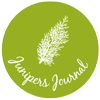









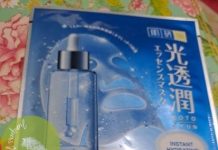

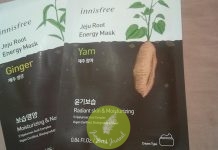












































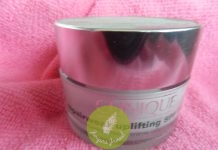





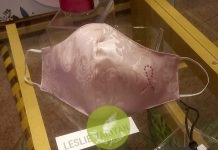





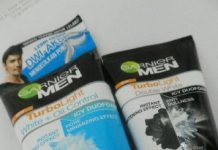

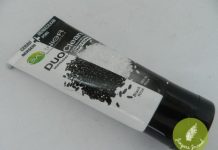
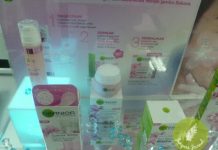
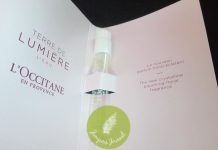
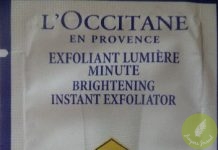
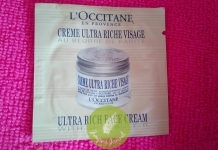




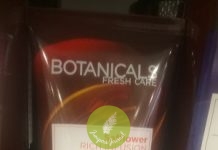





















Nutrition is a must nowadays